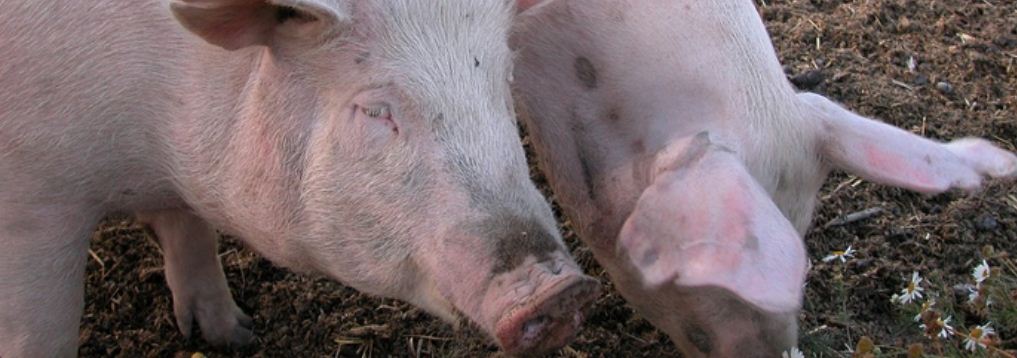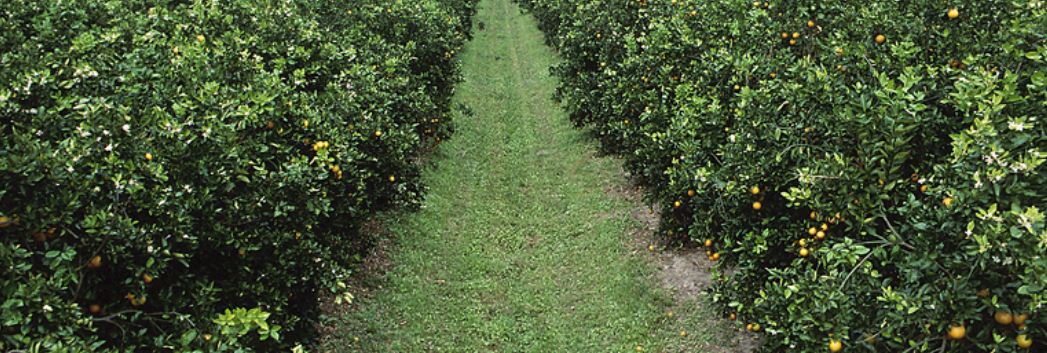How to Start a Successful Pig Farming Busines

Starting a pig farm business can be a great way to make money and succeed. However, it is vital to understand the basics of pig farming and have the right resources to set up a successful business.
Pig farming has become an increasingly popular business venture for entrepreneurs looking to profit from raising and selling pigs. The need for pork and other pig-based goods is growing, causing a surge in demand.
However, setting up a successful pig farm business requires more than just having some pigs to sell. It involves careful planning, research, and understanding of the industry to ensure you can thrive.
In this article, we will analyze the elements required for beginning a profitable pig farming business and how you can ensure its success in the industry.
How to Create a Profitable Pig Farm Business Plan
Starting a pig farm business can be a lucrative venture. However, creating a comprehensive business plan outlining the steps and strategies you need to take to ensure success is essential.
This guide will provide information on an excellent pig farm business plan. With this article, you can obtain in-depth knowledge about running a hog farm.
You will gain insight into choosing the right pig breed, comprehending their necessities, and identifying the right market for your products.
Additionally, this guide will provide valuable tips on making your pig farming business more profitable while minimizing costs.
With this knowledge, you can feel secure as you embark on your swine farming enterprise and achieve success.
1. Research and Planning
Starting a piggery farm for the first time can be daunting, but with careful market research or feasibility study, you can find out if there is a demand for pork products in your area.
Market research is crucial in determining the size of your farm and the types of things you should grow. This way, you can guarantee that your product meets customer needs and wants.
Developing a comprehensive business plan that includes financial projections, marketing strategies, and operations methods is essential for maximizing the chances of success.
By carefully considering all aspects of the business and setting realistic goals, entrepreneurs can create a solid foundation for their venture.
2. Funding Options Available For Starting Your Own Pig Farming Business
What funding options are available if you want to start your own pig farming business? Fortunately, there are a variety of different grants and loans that can help small farms get off the ground. Depending on your location.
Crowdfunding platforms have become increasingly popular for those looking to raise money for their agricultural projects.
3. Choosing the Right Breeds for Your Pig Farm
Pigs are a great source of income for farmers, but choosing the right breed can be challenging. Knowing which species will produce the best results can be complex, with many species available.
When selecting breeds for a pig farm, there are several key factors to consider, such as:
A. Purpose: Determine the purpose of your pig farm, whether it's for meat production or breeding. Different breeds have different characteristics that make them better suited for specific purposes.
B. Climate: Consider your area's climate and how it may affect the health and productivity of the pigs. Choose breeds adapted to the local environment, as some species may not do well in extreme temperatures.
C. Market demand: Research the market demand for pork products in your area and choose breeds that are popular among consumers. This will help ensure that your pigs have a ready market when they are prepared for sale.
D. Growth rate and feed conversion: Look for breeds with a reasonable growth rate and efficiently convert feed into meat. This will help maximize your profits and reduce the cost of the meal.
E. Disease resistance: Choose breeds resistant to common pig diseases in your area. This will help reduce the risk of disease outbreaks and the need for expensive treatments.
4. Choosing the Right Housing and Location for Your Pig Farm
Constructing a pig farm housing requires careful planning to ensure that the accommodation is comfortable, safe, and meets the needs of your pigs. Here are some factors to consider when constructing a pig farm housing:
A. Location: Choose a location that is easily accessible and far away from residential areas or water sources to avoid contamination. Ensure that the site is well-drained and has good ventilation to reduce the risk of diseases.
B. Size: The housing should be spacious enough to accommodate the number of pigs you plan to raise. Consider the size of the pigs and the number of pigs per pen. The minimum space required per pig is 8 square feet (0.74 square meters).
C. Flooring: The flooring should be made of concrete or slatted floors to provide a comfortable and clean environment for the pigs. The floor should slope towards a drainage channel to ensure proper waste management.
D. Ventilation: Proper ventilation is necessary to reduce the risk of respiratory diseases. Ensure that the housing has enough openings for air to circulate freely.
E. Lighting: Adequate lighting is an essential requirement for pig farming. The pigs must have access to adequate lighting to ensure their well-being.
5. What are the Necessary Supplies & Equipment Required for Successful Pig Farming?
Successful pig farming requires the necessary supplies and equipment to ensure your pigs' health and well-being and maximize productivity. Here are some of the essential supplies and equipment needed for pig farming:
A. Housing: Building a suitable housing structure for your pigs is essential for their health and well-being. The facility must provide ample space, good ventilation, and protection from elements like wind, rain, and snow.
Proper insulation of the housing also helps maintain a comfortable temperature inside. Considering these factors when constructing your pig house, you can ensure your pigs are safe and healthy while living in their new home.
B. Feeding and Watering Equipment: Pigs need clean water and a balanced diet to grow and stay healthy. Automatic feeding and watering equipment such as troughs, feeders, and waterers are necessary to ensure that pigs have access to clean water and feed at all times.
C. Health and Disease Management Equipment: Equipment such as syringes, needles, and thermometers are necessary for administering vaccinations and monitoring the health of your pigs.
You may also need disinfectants and other cleaning materials to maintain a clean and healthy environment.
D. Handling Equipment: Pigs can be challenging, especially when full-size.
6. Ensure your pig farm meets all animal welfare and food safety regulatory requirements.
Running a pig farm is a challenging feat. To stay compliant with animal welfare and food safety regulations, you must maintain the highest standards of hygiene and husbandry on your pig farm.
From adhering to animal welfare guidelines to ensuring that all food safety requirements are met, properly educating yourself on the regulations and implementing them can help ensure your business runs smoothly.
7. Develop a Nutrition Plan
Pigs must have a diet consisting of all the essential nutrients to ensure healthy development & growth as well as maintain robust health. Pig farmers must develop a comprehensive nutrition plan that provides nutrients and calories to ensure their animals are healthy and thriving.
This plan must consider the particular needs of each pig, as well as factors such as age, activity level, seasonality, and feed availability. Having an appropriate nutrition program in place is essential for pig farmers. This ensures their animals access all the vital nutrients needed to promote long and healthy life.
8. Health and Disease Management
Developing a new pig farm requires proper planning and implementation of adequate health and disease management practices to ensure the health and well-being of your pigs. Here are some steps to consider:
A. Biosecurity Measures: Implement biosecurity measures to prevent the introduction and spread of diseases on your farm. This includes measures such as controlling access to your farm, disinfecting equipment and facilities, and isolating new pigs before introducing them to the rest of the herd.
B. Vaccinations: Work with a veterinarian to develop a vaccination program for your pigs to protect them against common diseases. Ensure that all pigs are vaccinated according to the recommended schedule.
C. Hygiene: Maintain high levels of hygiene on your farm by regularly cleaning and disinfecting facilities, equipment, and pig areas. Ensure that pigs have access to clean water and feed.
D. Monitoring: Regularly monitor the health of your pigs to detect any signs of illness or disease early. This can include observing their behavior, checking their weight, and conducting regular health checks.
E. Quarantine: Quarantine any pigs that show signs of sickness occasionally for optimum results in disease management and control.
9. Marketing Strategies & Planning Ahead For Your Pig Farm Business
Starting a pig farm business is a challenging task. You need to plan and have a solid marketing strategy to make your business successful. This article will discuss the different marketing strategies you can use for your pig farm business and how you can plan in the livestock industry.
If you have a pig farm business and are looking for ways to promote it, here are some marketing ideas to help you. Whether you run a new or existing business, these strategies can help boost your sales:
A. Define your target market: Identify your target customers and their needs. This will help you personalize your marketing strategy and ensure it effectively reaches your target audience.
B. Develop a brand identity: Create a unique brand that will differentiate your pig farm business from competitors. This includes designing a logo, choosing a color scheme, and creating a tagline that reflects your brand values.
C. Build a website: A website is an essential marketing tool for any business. It allows customers to learn more about your pig farm business, view your products, and contact you. Ensure that your website is mobile-friendly and optimized for search engines.
D. Use social media: Social media platforms like Facebook, Instagram, and Twitter can help you reach a wider audience. Use these platforms to post pictures of your pigs, share product information, and engage with customers.
E. Attend trade shows: Attend trade shows and fairs focusing on pig farming to showcase your products and services. This will help you network with potential customers and suppliers.
Conclusion:
Setting up a successful pig farm business requires careful planning and thoughtful execution. Many factors go into creating a successful pig farm, from selecting suitable breeds to creating an efficient marketing strategy. With the proper knowledge and resources, pig farmers can ensure their business thrives.




